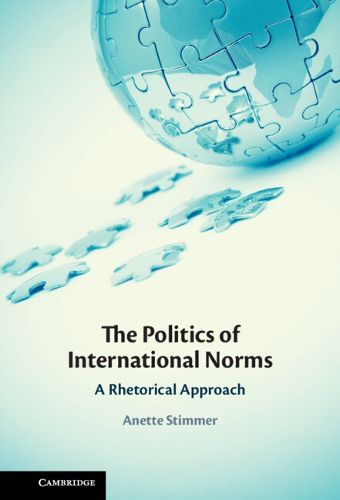Readings Newsletter
Become a Readings Member to make your shopping experience even easier.
Sign in or sign up for free!
You’re not far away from qualifying for FREE standard shipping within Australia
You’ve qualified for FREE standard shipping within Australia
The cart is loading…






Norm contestation is prevalent in international affairs: Legal ambiguities and tensions generate debate, even when well-established international norms are applied to concrete situations. This book discusses a wide range of norm disputes and develops a rhetorical approach to the politics of international norms. Anette Stimmer demonstrates how actors can agree or disagree on the norm frame (norm-based justification) and/or behavioural claim (implementing action) when applying international law. Thus, norm contestation can have four "alternate endings": norm impasse, norm neglect, norm recognition, and norm clarification. These alternate endings affect the clarity and strength of the contested norms, as well as subsequent debate, differently. Furthermore, Stimmer explains how the three elements of rhetoric - speakers (including delegation to agents), argumentation, and audience reactions - influence the duration and outcome of contestation. This rhetorical approach is applied to eight norm disputes, ranging from military interventions to contestation over the human rights of terror suspects.
$9.00 standard shipping within Australia
FREE standard shipping within Australia for orders over $100.00
Express & International shipping calculated at checkout
Norm contestation is prevalent in international affairs: Legal ambiguities and tensions generate debate, even when well-established international norms are applied to concrete situations. This book discusses a wide range of norm disputes and develops a rhetorical approach to the politics of international norms. Anette Stimmer demonstrates how actors can agree or disagree on the norm frame (norm-based justification) and/or behavioural claim (implementing action) when applying international law. Thus, norm contestation can have four "alternate endings": norm impasse, norm neglect, norm recognition, and norm clarification. These alternate endings affect the clarity and strength of the contested norms, as well as subsequent debate, differently. Furthermore, Stimmer explains how the three elements of rhetoric - speakers (including delegation to agents), argumentation, and audience reactions - influence the duration and outcome of contestation. This rhetorical approach is applied to eight norm disputes, ranging from military interventions to contestation over the human rights of terror suspects.